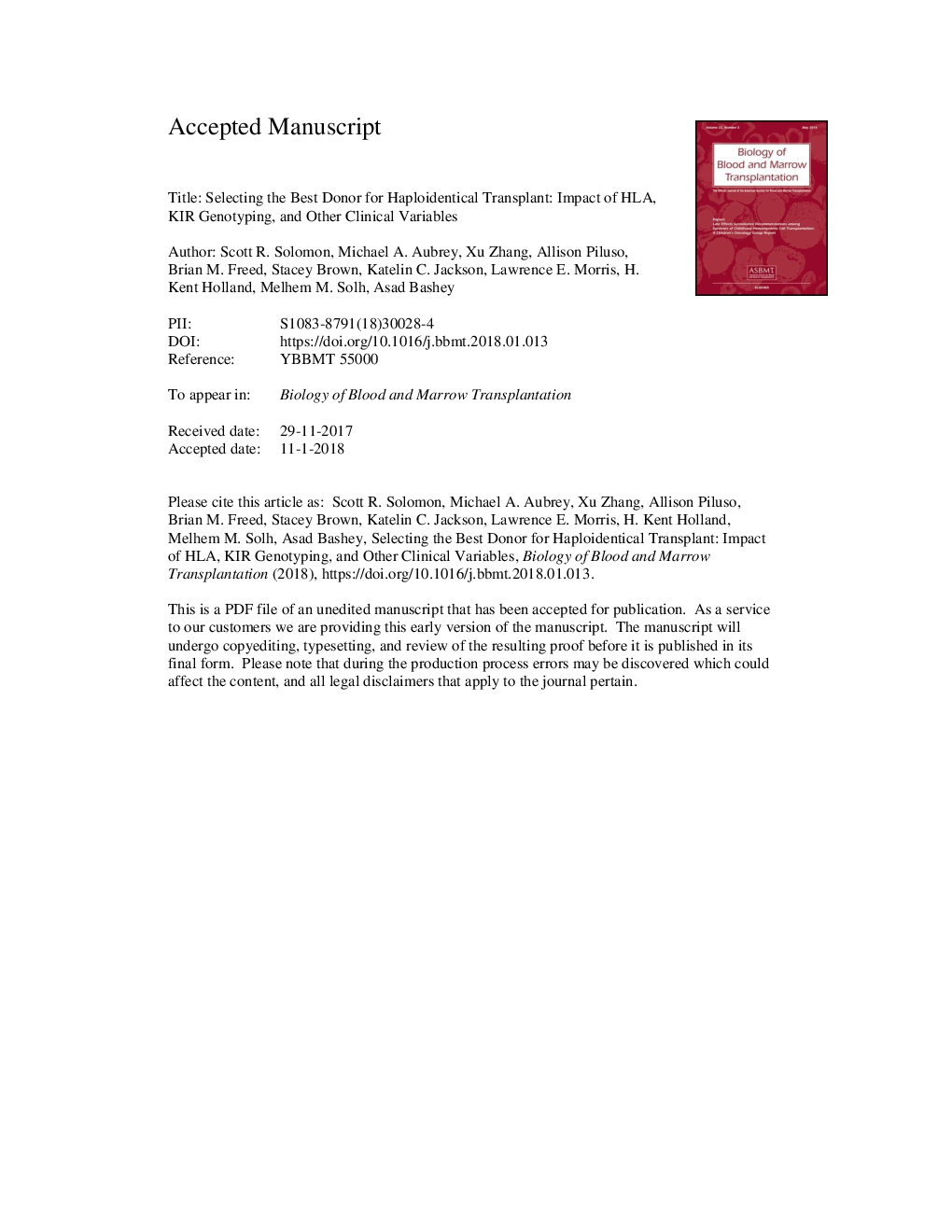| Article ID | Journal | Published Year | Pages | File Type |
|---|---|---|---|---|
| 8430032 | Biology of Blood and Marrow Transplantation | 2018 | 23 Pages |
Abstract
The use of post-transplant cyclophosphamide (PTCy)-based haploidentical (haplo) transplant is increasing worldwide. However, because multiple potential haplo donors are usually available, data-driven guidance is clearly needed to help transplant centers prioritize donors. To that end, we retrospectively analyzed 208 consecutive donor-recipient pairs receiving PTCy-based haplo transplant at a single institution. Median recipient and donor age were 52 years (range, 19 to 75) and 38 years (range, 15 to 73), peripheral blood stem cell was the stem cell source in 66%, and myeloablative conditioning was used in 41%. Median follow-up for surviving patients was 33 months (range, 7 to 130). Donor variables analyzed included age, sex, relationship, cytomegalovirus (CMV) status, ABO compatibility, HLA disparity, and several natural killer (NK) alloreactivity models. Multivariate Cox analysis was used to adjust for known patient, disease, and transplant covariates. Donor characteristics independently associated with improved survival included presence of HLA-DR mismatch, HLA-DP nonpermissive mismatch, killer cell immunoglobulin-like receptor (KIR) receptor-ligand mismatch, and KIR B/x haplotype with KIR2DS2. Donor characteristics associated with inferior survival included parental donor relationship and the use of a CMV-seronegative donor for a CMV-seropositive patient. Increased HLA disparity (â¥4/10 HLA allelic mismatches [graft-versus-host direction]) resulted in relapse protection at the expense of increased nonrelapse mortality with no associated survival effect. We further propose a donor risk factor scoring system to permit a more evidence-based selection algorithm for potential haplo donors. This large, single-institution analysis demonstrates the importance of HLA-DR/HLA-DP disparity, NK alloreactivity, and other clinical variables in the haplo donor selection process and suggests that KIR and HLA-DP genotyping should be performed routinely for haplo donor selection.
Related Topics
Life Sciences
Biochemistry, Genetics and Molecular Biology
Cancer Research
Authors
Scott R. Solomon, Michael T. Aubrey, Xu Zhang, Allison Piluso, Brian M. Freed, Stacey Brown, Katelin C. Jackson, Lawrence E. Morris, H. Kent Holland, Melhem M. Solh, Asad Bashey,
